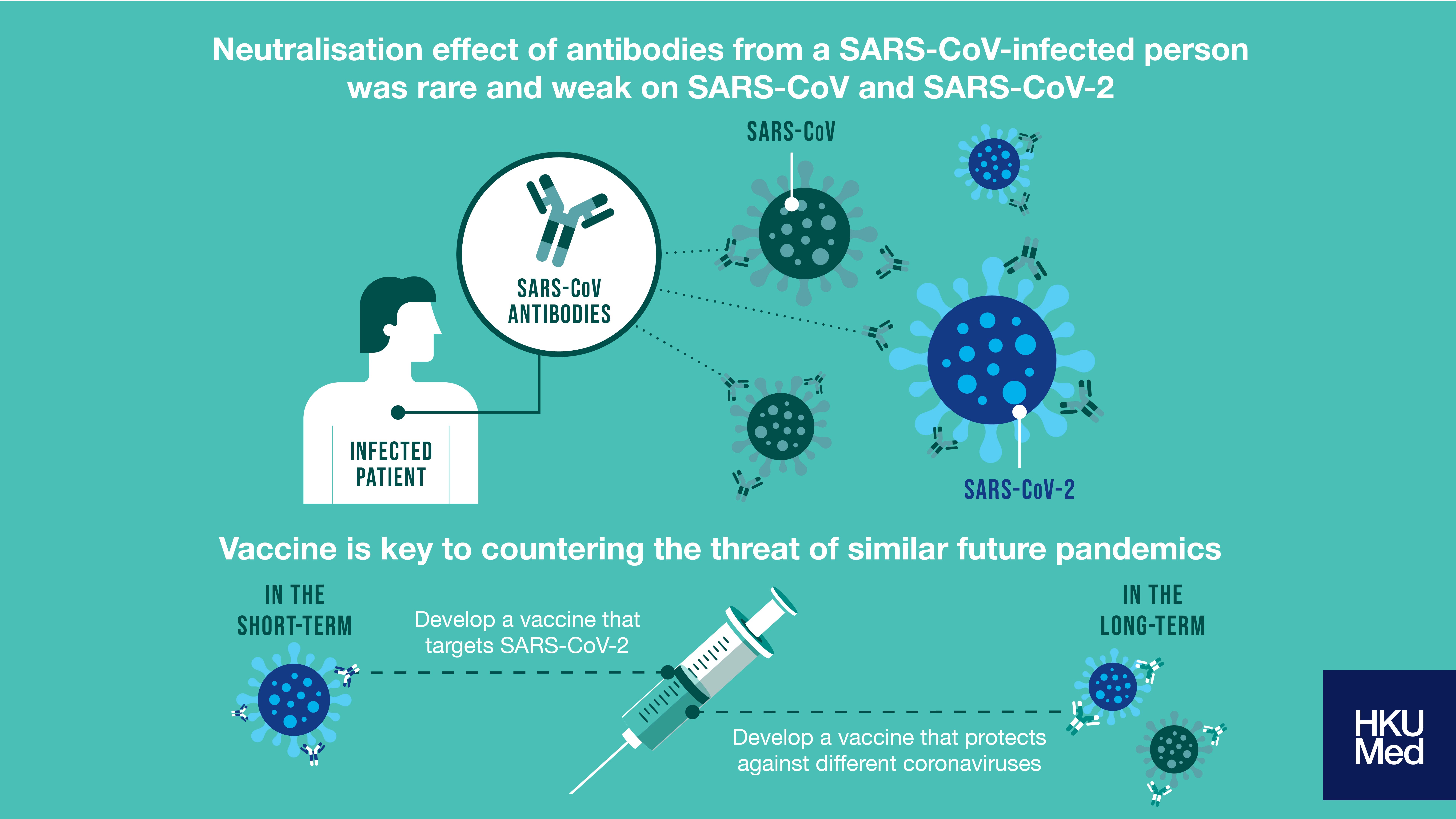Our understanding of how the immune system responds to SARS-CoV-2 is limited. Experts from HKUMed analyzed blood plasma from 15 patient samples infected with SARS-CoV-2 or SARS-CoV (the virus that caused the 2003 outbreak). Mice infected with both viruses were also used to study their immune responses. The purpose of this study was to find out if the antibodies produced against SARS-CoV-2 or SARS-CoV were useful in the development of a vaccine. Study results were published in Cell Reports, a reputable scientific journal.
Key takeaways from the study:
- Antibodies produced in SARS-CoV-2-infected patients were able to react to certain parts of the SARS-CoV virus, and vice versa.
- Only one out of 15 patients infected with SARS-CoV-2 was able to produce antibodies that neutralized both SARS-CoV-2 and SARS-CoV viruses. However, the protection against SARS-CoV was very weak.
- Mice infected with SARS-CoV-2 did not produce an immune response as the virus was not able to multiply in the animal.
- Mice immunized with SARS-CoV did not produce a strong immune response to SARS-CoV-2.
This study showed that the human immune system targeted different parts of the SARS-CoV-2 and SARS-CoV viruses in its response against these viruses, which will have an impact on vaccine development. Finding an antibody produced by the immune cells that is effective against SARS-CoV-2 will be crucial in the development of a vaccine. More importantly, a vaccine that can protect against multiple coronaviruses can play an important role in preventing future pandemics like this.
To read the original article published in Cell Reports, click here.
